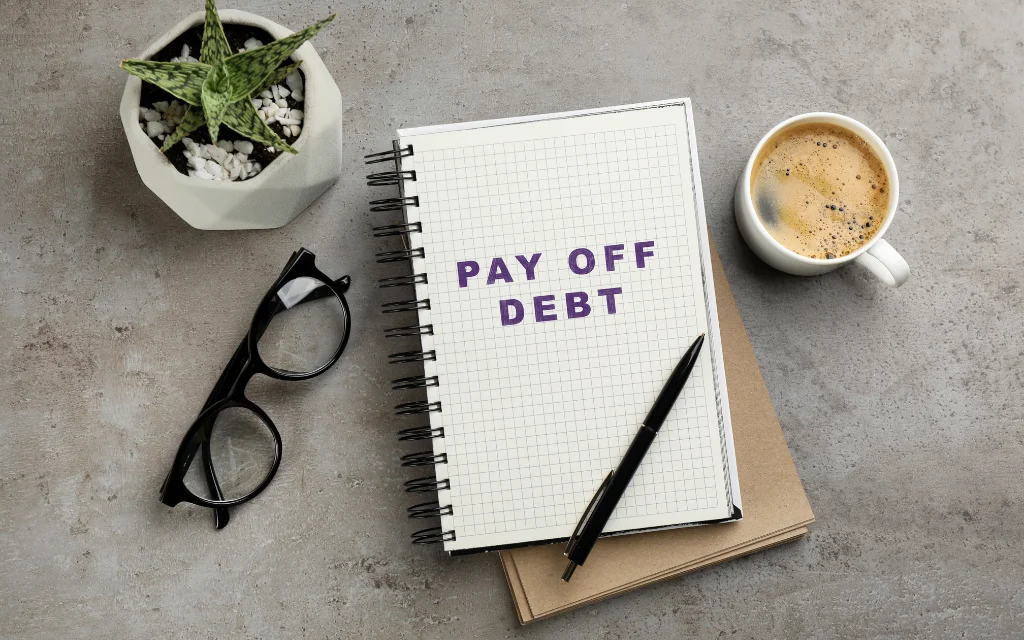Pay Off Debt Strategies to reduce what you owe and choose the best path based on your financial situation.
It can be overwhelming to have so many options for debt repayment. The amount you owe and how it relates to your income will determine the best approach to pay off your debt.
Using a method like prioritizing your smallest balance first and careful budgeting, you may be able to manage your debt on your own if it does not take up a sizable amount of your income.
However, if your debt is too much, you could be better off looking for ways to boost your income, consolidating your obligations, or looking into debt relief.
By being aware of these tactics, you can reduce your debt.
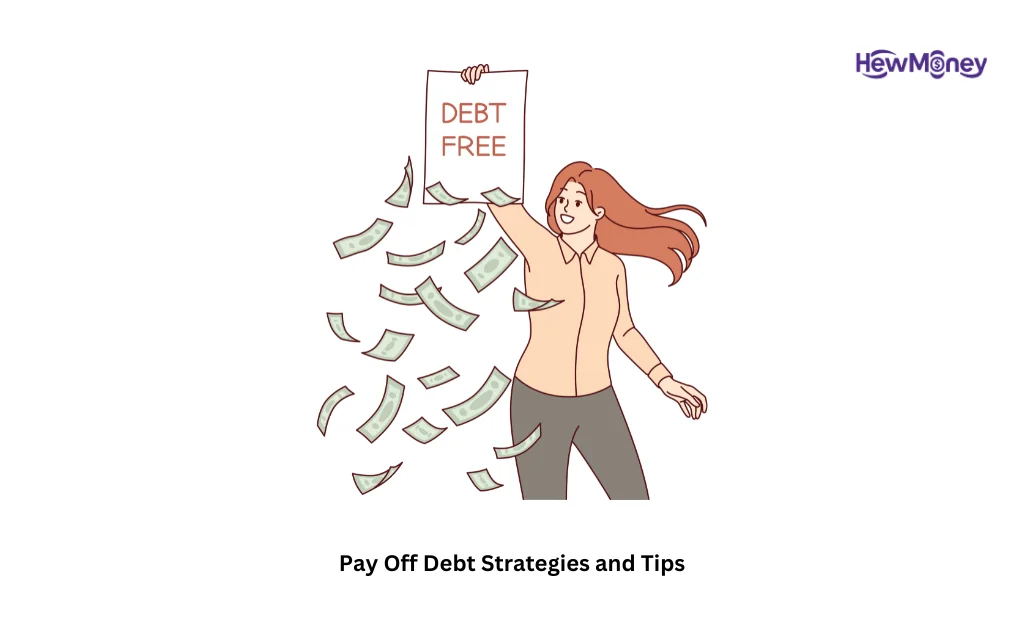
How to pay off debt
Assess your debt load
It can be overwhelming to have so many options for debt repayment. The best approach to pay off debt relies primarily on how much you owe and how it compares to your income.
Using a method like prioritizing your smallest balance first and careful budgeting, you may be able to manage your debt on your own if it does not take up a sizable amount of your income.The optimal method of debt repayment will mostly rely on your debt to income ratio.
Determine if you simply have too much debt to begin with. This helps you decide if you should look into debt relief solutions like a debt management program or if you can adopt a do-it-yourself approach to pay off your debt.
The following calculator compares your gross annual income (total pay before taxes or deductions) with the amount you owe on major loan kinds. The reward technique that might be most appropriate for your circumstances is then suggested.
However, if your debt is too much, you could be better off looking for ways to boost your income, consolidating your obligations, or looking into debt relief.
By being aware of these tactics, you can reduce your debt.
Look into DIY debt payoff methods
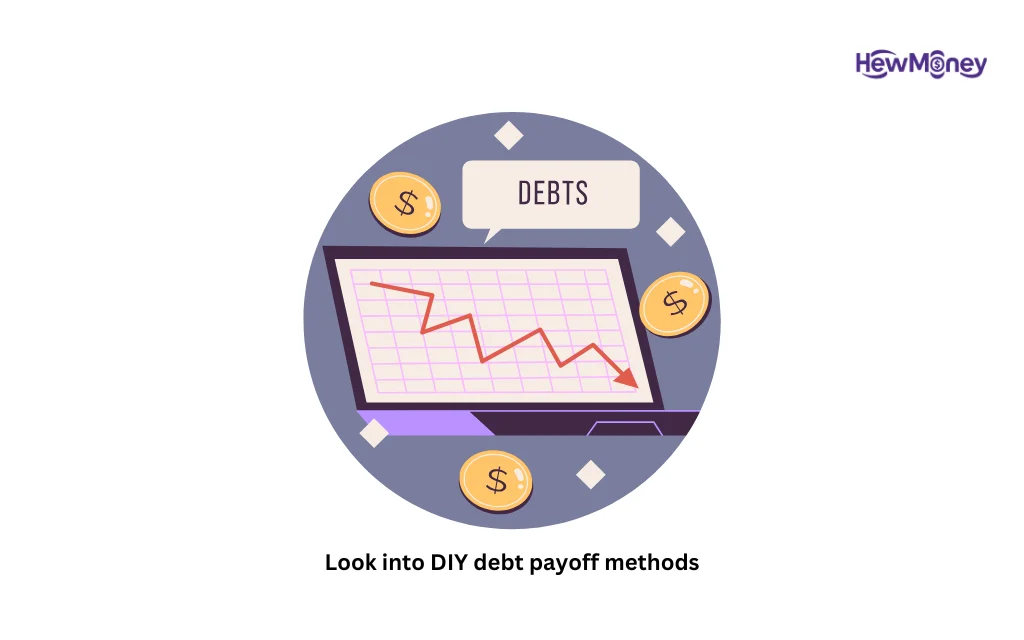
You can try a few strategies that do not involve looking for extra goods or services:
Debt snowball: This approach prioritizes paying off your lowest amount first. While you continue to make the minimum payments on the other accounts, put all of the additional funds you can spare for debt repayment into that account.
Add the amount you were paying on that loan to the minimum payment on the next biggest obligation after it has been paid off. As you roll over the concentrate debt, the amount you are paying on it keeps increasing like a snowball.
Debt avalanche: Pay off the debt with the highest interest rate first, then the next highest rate account, and so on, while making minimal payments on the remaining debts.
By paying off the most expensive debt first, this could help you pay off your debt more quickly and ultimately save money. However, it may take some time to pay off that first loan, depending on the balance. Snowball would be a superior strategy if you would be more motivated by faster wins.
Reduce your credit utilization: Another option is to concentrate on paying off the credit cards that have the highest credit utilization, or the one that has the largest proportion of its maximum being used. Your credit score is heavily influenced by credit utilization, thus in this instance, reducing debt may also improve your score.
Consider debt consolidation
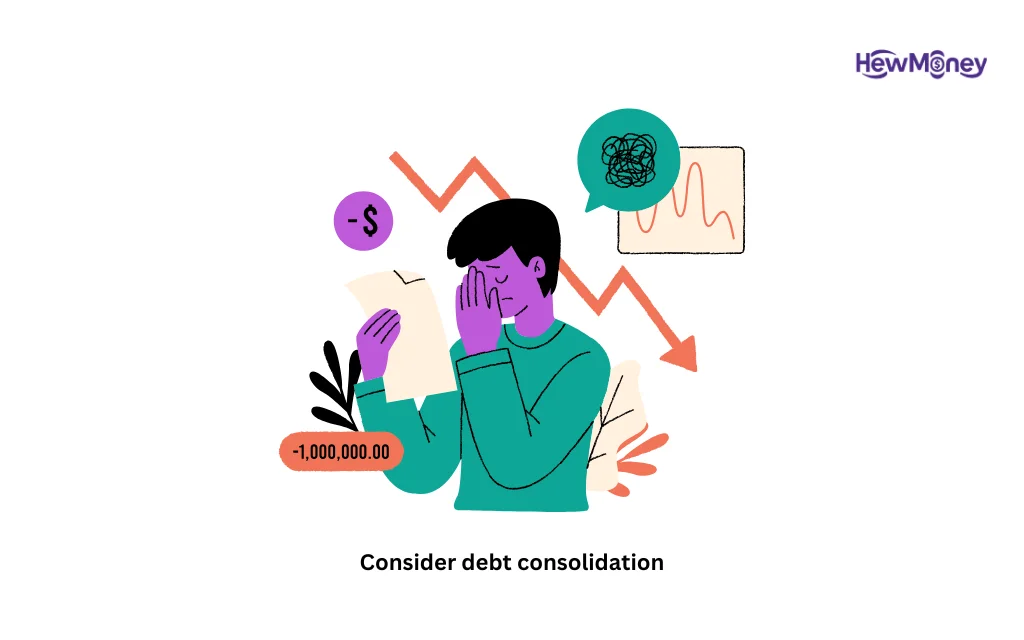
Debt consolidation is the process of combining several high-interest obligations, like credit card balances, into a single monthly payment, preferably at a reduced interest rate, utilizing a special loan or credit card. The following are some possible advantages of debt consolidation:
- bringing down your interest rate.
- facilitating the management of your payments.
- reducing the amount of time it takes to settle your debt.
The two primary options for consolidating debt are a debt consolidation loan or a balance transfer credit card, but keep in mind that you will probably need a high credit score to be eligible or receive a favorable rate. Although each lender has different standards, credit scores of 690 or above are often considered good.
You can also utilize a home equity loan or your 401(k) to pay off debt, but in both situations, you run the danger of losing both your house and your retirement funds.
Create a budget and stick to it
Having a detailed budget will help you prioritize your spending if you feel like you do not have enough money to pay off debt.
Select a system that suits your needs: There is no one-size-fits-all approach to budgeting, and some people may find it more difficult than others. For instance, there may be particular financial difficulties associated with neurodiverse status. The good news is that there are a number of budgeting techniques, such as the envelope system, the zero-based method, or the 50/30/20 budget, and you may choose the one that suits you best.
Utilize technology to streamline the process: By enabling you to monitor all of your financial accounts, classify your spending, and automate payments, technology can streamline the budgeting process. Numerous budgeting applications are available to assist you in managing your finances.
Find ways to lower your bills
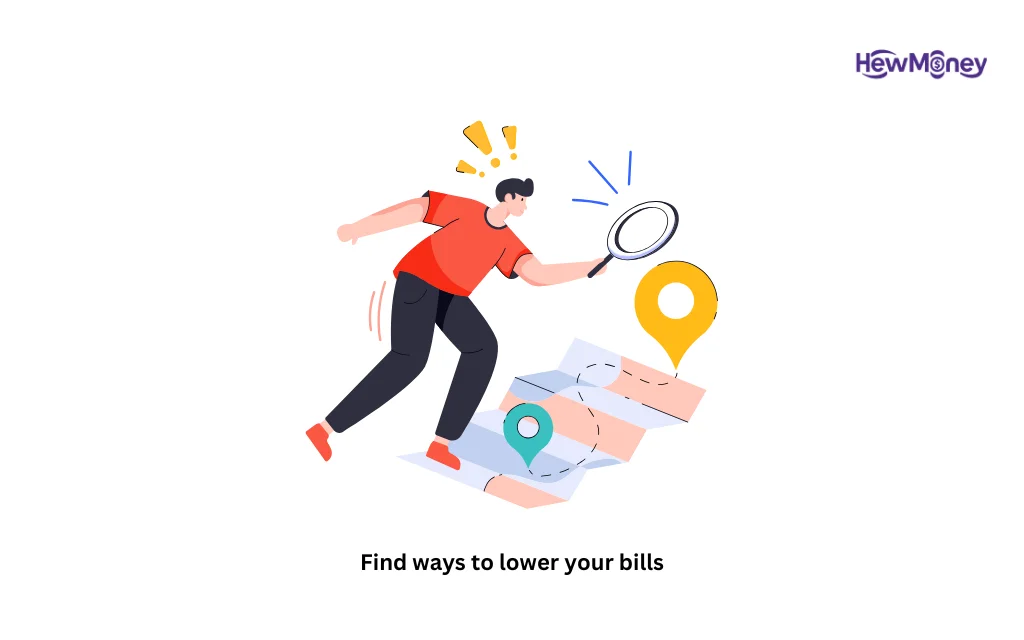
You can have extra money to use for debt repayment if you can find ways to cut your monthly expenses. Additionally, every tiny bit matters. Never be scared to get in touch with your service providers and try to work out a better deal on things like your cell phone bill.
Additionally, you might be able to haggle over your payments for things like cable subscription, credit cards, gym memberships, and auto insurance. You might be able to receive a better bargain by switching providers. Investigate and contrast the prices offered by various businesses.
Get a second job
Even in the short run, earning extra money can help your debt repayment strategy if you are able to.
Think about taking a part-time job, selling unwanted or lightly used goods, or using your abilities to work as a freelancer. You can advance by taking up a second gig like home sitting, driving for Uber or Lyft, or even walking dogs.
Do not rule out getting paid more than you now do. You might be able to negotiate a raise at your current work with preparation and research.
Explore debt relief options
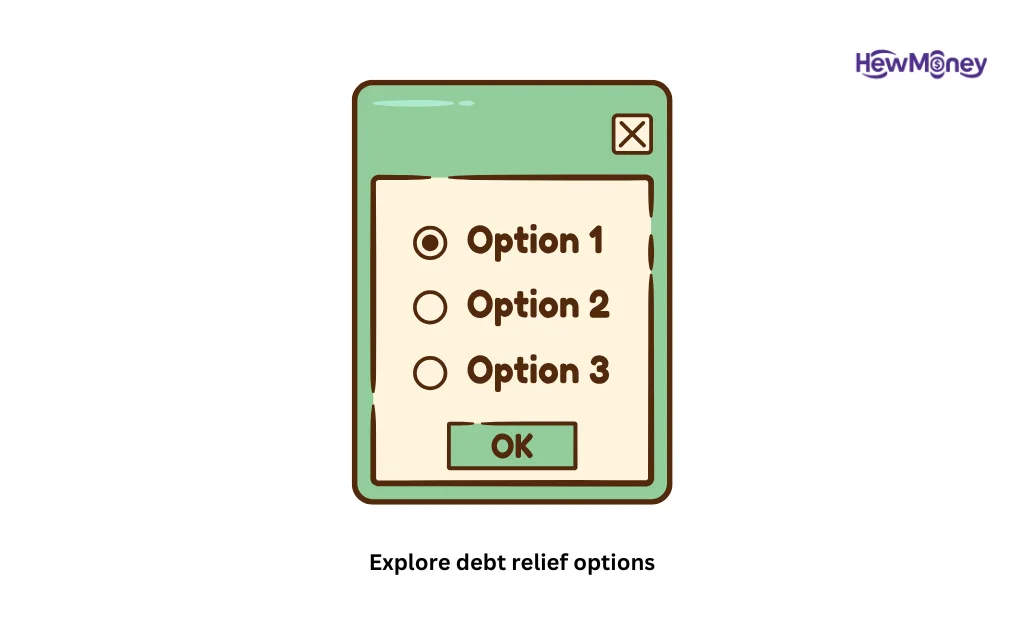
You might wish to pursue debt relief if you have tried budgeting, negotiating your payments, and earning more money, but to no avail. Although it is not for everyone, debt reduction can assist you in reducing your financial load by modifying the terms or amount of your debt.
If it is not possible to pay off your unsecured debt, such as credit card bills, personal loans, and medical debt, within five years, or if the total amount of your unsecured debt exceeds 50% of your gross income, you should think about debt relief. A few types of debt relief are as follows:
Working with a recognized counseling organization to pay off your debt at a reduced interest rate or with no costs is the standard approach to debt management.
The two most prevalent types of bankruptcy, Chapter 7 and Chapter 13, entail either wiping off the majority of unsecured debt or being put on a three- to five-year repayment plan that has been approved by the court.
For those who do not want to file for bankruptcy or who do not qualify, debt settlement may be a good option. In order to lower your debt, you must negotiate with your creditors. You have the option of hiring a company to settle your debt or attempting to do it yourself by getting in touch with your creditors.
Pay Off Debt Strategies
Pay Off Debt Strategies are essential for managing your finances wisely and reducing your debt burden. By using the right approach, you can create a solid repayment plan, prioritise high-interest debts, and make smarter financial decisions. Whether through budgeting, debt consolidation, or increasing your income, these strategies will help you regain control of your finances and work towards a debt-free future with confidence.

